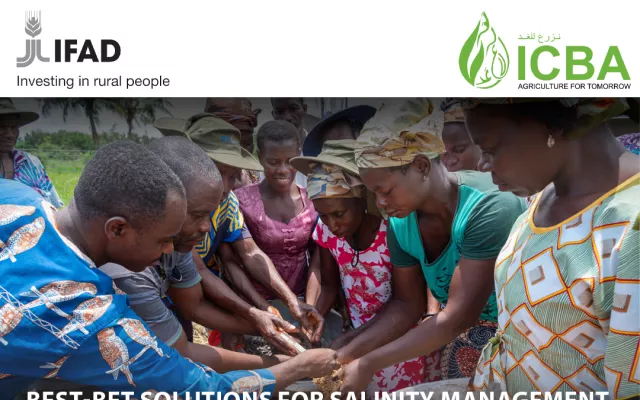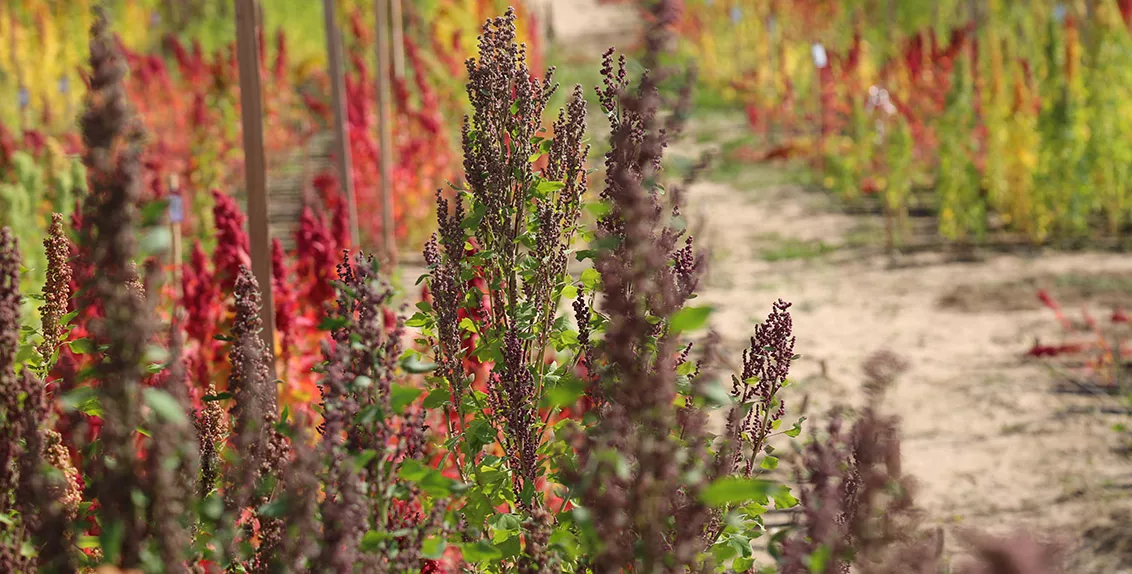ICBA partners with Indian agribusiness society
20 July 2020
The International Center for Biosaline Agriculture (ICBA) and the Indian Society of Agribusiness Professionals (ISAP) have agreed to collaborate on introducing sustainable agricultural practices in India’s marginal areas to improve rural communities’ food, nutrition and income security.
The collaboration was recently formalized through a memorandum of understanding signed by Dr. Ismahane Elouafi, Director General of ICBA, and Mr. Sudarshan Suryavanshi, Chief Executive Officer and Co-founder of ISAP, which is one of the largest networks of agriculture and the allied sector professionals in India.
Under the agreement, ICBA and ISAP will, among other things, develop projects aimed at boosting food, nutrition, water, and income security of India's farming communities. Moreover, both organizations will share knowledge, and identify and recommend strategies for agricultural systems for sustainable agricultural production.
The main focus will be on introducing improved germplasm and scaling up agricultural value chains for climate-resilient and underutilized crops such as quinoa in marginal areas. These areas include Bundelkhand region in central and north India, which has climate-related and human-made environmental challenges.
The region has experienced several recurrent droughts in recent years, affecting millions of people living there. So it is important to address agriculture-related issues such as water management and crop production through sustainable interventions. Under the partnership, ICBA and ISAP will also build the capacities of local extension specialists to raise awareness about sustainable agricultural practices and minimize the impact of future droughts and other risks to agriculture.
Capitalizing on ICBA's years of expertise in climate modeling and drought monitoring in the Middle East and North Africa (MENA) region, ICBA and ISAP also plan to operationalize drought monitoring systems in the selected areas. Over the past several years, ICBA has empowered decision-makers in the MENA region to mitigate and manage the effects of droughts on food and water security under current and future climate conditions.
According to ISAP, its efforts to improve livelihoods in India have benefitted more than one million rural households and have reached more than a million farmers through various programs. ISAP has also set up around 200 farmer-producer organizations across the country. The society acts as a bridge between a network of Indian rural communities and other stakeholders, including government agencies, development organizations and corporate entities.
Established in 1999 through the visionary leadership of the Government of the UAE and the Islamic Development Bank (IsDB), ICBA has worked with partners in more than 30 countries to introduce crop varieties and technologies best suited to local conditions. As part of this partnership, ICBA will share its extensive technical know-how and experience and develop tailor-made solutions.










